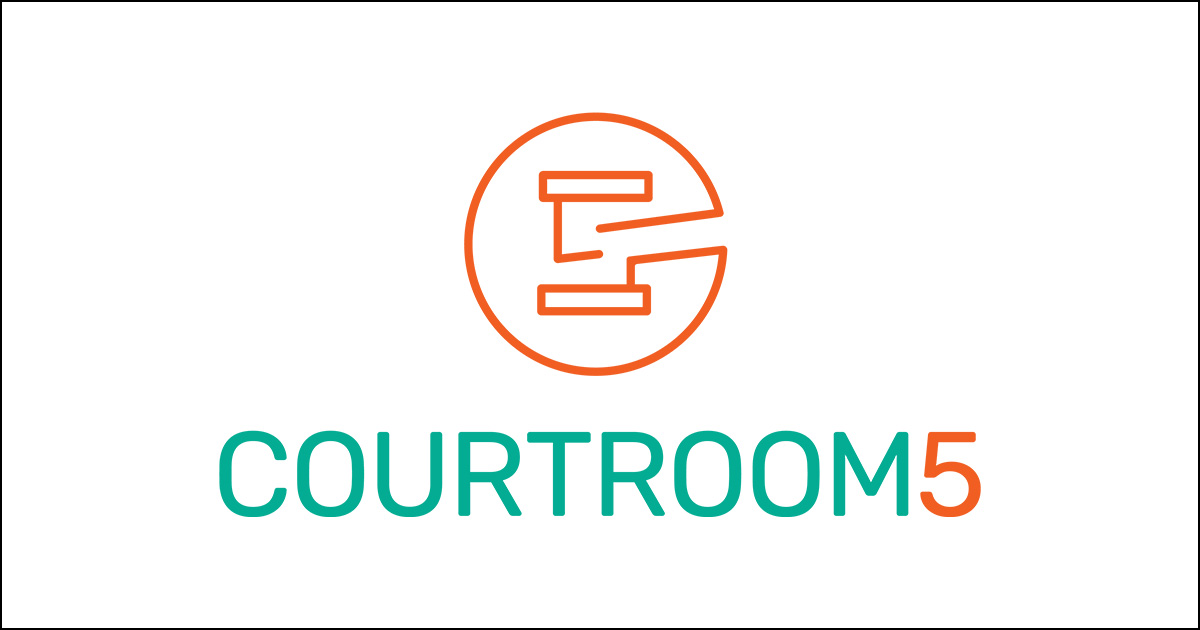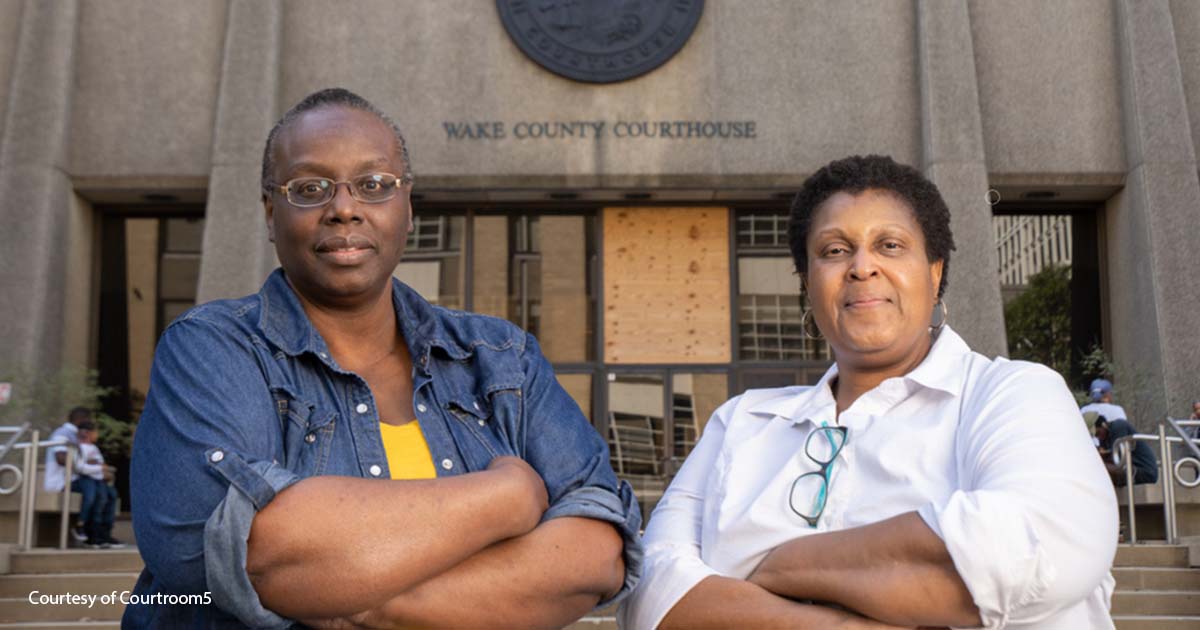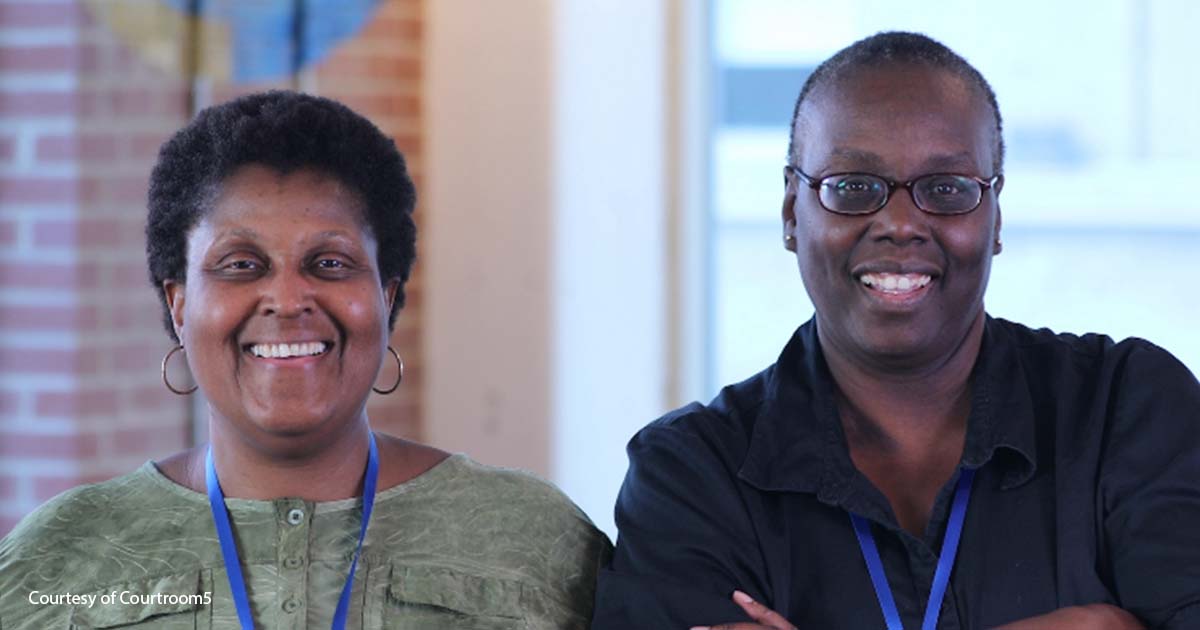Courtroom5 Profile

Last Updated: By TRUiC Team
Courtroom5 is a legal tech startup that provides online services and resources for anyone wishing to represent themselves in complex civil litigation.
Interview With Sonja Ebron
Describe your product or service:
“Courtroom5 helps people represent themselves in complex civil litigation, such as debt collection, foreclosures, contested divorces, civil rights claims, and other matters. The Courtroom5 solution addresses the two primary needs of the self-represented civil litigant in these complex cases — deciding what to file at any step and then filing an effective legal document to reach the next step.
Artificial intelligence tracks the user's progress in the case and points the user at each step to relevant training designed to help the user decide what to file next. The user then conducts claims analysis, legal research, and document assembly leading to a ready-to-file legal document. The user follows this process repeatedly throughout the case until a judgment or settlement is reached.”
Describe your company values and mission:
“Courtroom5 is on a mission to deliver access to justice to everyone. We believe average people, who are closest to the facts of their cases, are their own best advocates and can obtain a fair hearing in court when provided basic information and support to use the legal system.”
How are you funded? I.e. venture capital, angel investors, etc.
“Courtroom5 has received funding from friends and family, angels, institutional venture capital, but also from pitch competition awards, grants, zero-interest loans, and customers.”
How big is your team? Tell us a little about them (I.e. co-founders, freelancers, etc.)
“The founders are Sonja Ebron and Debra Slone, former academics and experienced self-represented litigants. There are a dozen others on the team covering engineering, project management, software development, and customer service.”
How did you come up with and validate your startup idea? Tell us the story!
“Each of the founders had experienced the hardships of representing herself in court. We each have Ph.D.’s — Sonja's an electrical engineer, and Debra is a librarian and information scientist — so we were able to quickly learn the information and develop the skills necessary to capably advocate for ourselves. But whenever we went to court, we saw many people struggling to understand and navigate our complex civil litigation system and getting the short end of the stick each time. We committed ourselves to providing a scalable solution to this problem.”
How did you come up with your startup's name? Did you have other names you considered?
“We were brainstorming names and listening to Luniz's ‘I Got 5 On It’ in the background. Debra said, "You know, we could call this courtroom anything," and at that point, Luniz crooned the chorus line. We looked at each other, and "Courtroom 5" was born.”
Did you always want to start your own business? What made you want to become an entrepreneur?
“I loved teaching electrical engineering, but I've always wanted to be an entrepreneur. Courtroom5 is my third adventure in entrepreneurship. Two previous startups in energy utilities were great learning experiences.”
Feeling inspired? Learn how to launch your company with our guide on how to start a startup.
Did you encounter any roadblocks when launching your startup? If so, what were they and what did you do to solve them?
“We were concerned early on about violating state laws against the unlicensed practice of law. With suggestions from our legal teams and mentors in the legaltech space, we crafted a solution that provides legal information rather than legal advice.”
Who is your target market? How did you establish the right market for your startup?
“We serve people handling complex civil claims in any US court.”
What's your marketing strategy?
“We've invested heavily in search engine optimization and on search and social advertising.”
How did you acquire your first 100 customers?
“We found them in local courthouses and offered them discounts for sharing their stories with us.”
What are the key customer metrics / unit economics / KPIs you pay attention to to monitor the health of your business?
“We focus on conversion rates, customer acquisition costs, and customer lifetime value.”
What's your favorite startup book and podcast?
“Book: ‘E-Myth Mastery’
Podcast: ‘Masters of Scale’”
Is there a tool, app, or resource that you swear by to help run your startup?
“Jira is indispensable for herding developers and building/maintaining tech.”
What is something that surprised you about entrepreneurship?
“Entrepreneurship forces personal development. I've had to get over my ego more times than I can count.”
How do you achieve work/life balance as a founder?
“I try to meditate and get a walk every day.”
What is a strategy you use to stay productive and focused?
“Everything I plan to do gets a spot on my calendar, including checking email and app notifications.”
Did you have to develop any habits that helped lead you to success? If so, what are they?
“Active listening, choosing quick decisions over thoughtful decisions.”
What was your first job and what did it teach you?
“Bus person at Jack's Steakhouse in Raleigh, North Carolina. I learned that I wasn't cut out for restaurant work and that getting fired isn't the worst thing in the world.”
Recommended:
- Keep up with more startup companies by visiting our list of the top startups to watch.
- Hear startup stories from real founders on the Startup Savants podcast.
- Form your own startup by reading our review of the best online incorporation services.
Tell Us Your Startup Story
Are you a startup founder and want to share your entrepreneurial journey withh our readers? Click below to contact us today!
More on Courtroom5

The Startup That Believes in Access to Justice
Courtroom5’s mission is to help people navigate the US civil judicial system, from filing documents to learning legalese to addressing the judge properly.

Founder of Legal Tech Startup Courtroom5 Shares Their Top Insights
Sonja Ebron, founder of legal tech startup Courtroom5, shared valuable insights during our interview that will inspire and motivate aspiring entrepreneurs.

Here’s How You Can Support Legal Tech Startup Courtroom5
We asked Sonja Ebron, founder of Courtroom5, to share the most impactful ways to support their startup, and this is what they had to say.



